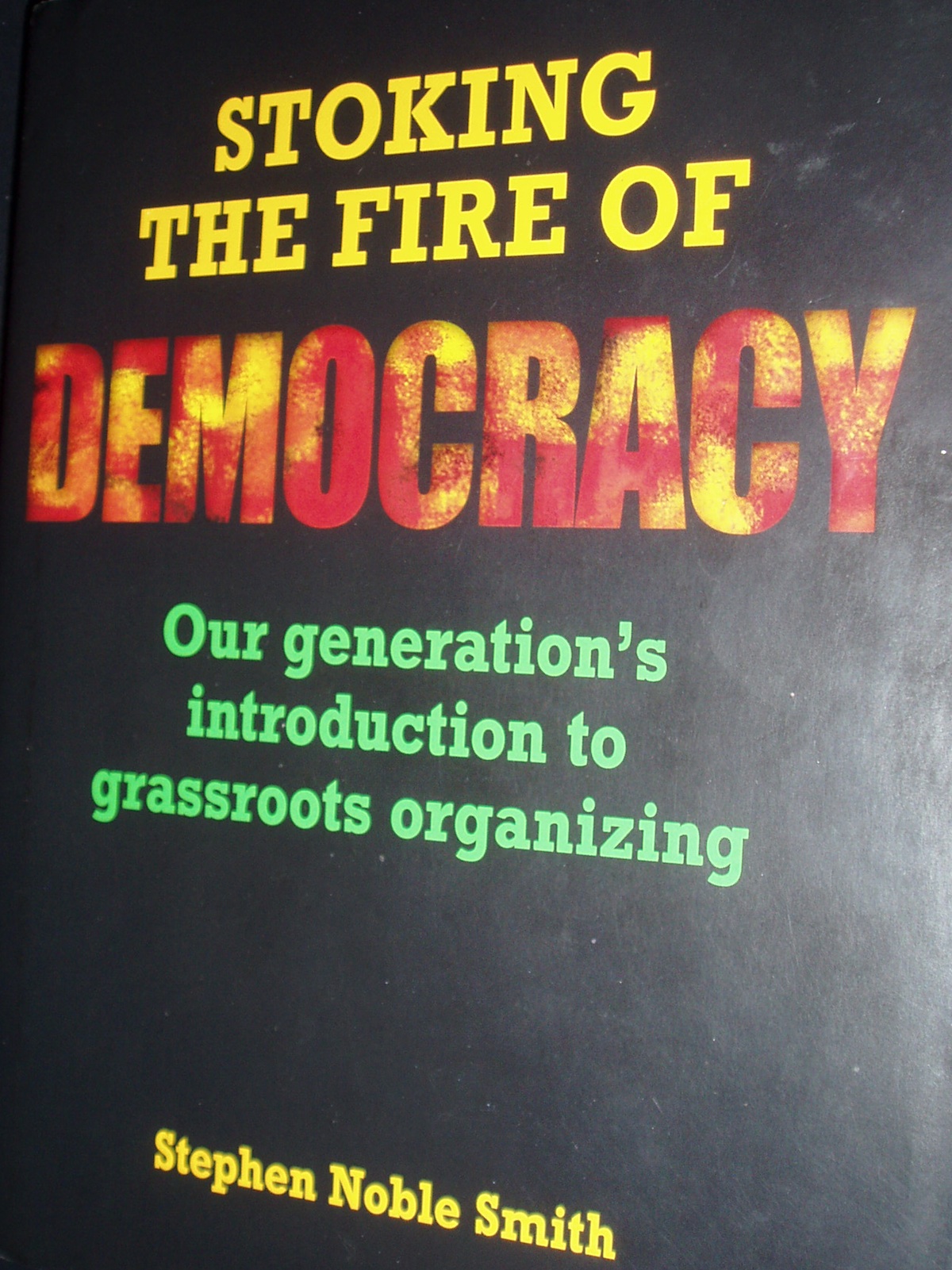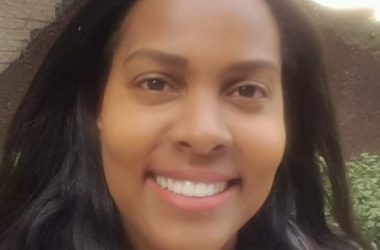Coalition leader’s book provides insight to ‘Our Children, Our Future’
Editor’s Note: The following is part of the West Virginia Press Association’s series on the “Our Children, Our Future” coalition. The association is following the coalition’s efforts to develop and push legislation to combat child poverty during the 2014 session of the West Virginia Legislature.
By George Hohmann
West Virginia Press Association
CHARLESTON, W.Va. — Courage.
From his ongoing efforts aimed at eliminating child poverty in West Virginia back to his 2009 book on political activism — “Stoking the Fire of Democracy: Our Generation’s Introduction to Grassroots Organizing” — Stephen Smith’s underlying theme has been courage.
Smith, a leader of the “Our Children, Our Future Campaign to End Child Poverty,” is working with other activists and more than 30 organizations around the state to identify issues affecting child poverty. Those activists meet on Friday, Dec. 13, in Parkersburg to narrow the coalition’s focus to five issues. Earlier meetings in Beckley, Bridgeport and Charleston focused on 18 issues. All of the participants will be asked to push for the five selected issues when the Legislature convenes next month.
Few involved with state politics would question the courage necessary to ask a room full of activists to set aside their singular issues and work on one common goal during the annual West Virginia legislative session.
Where does Smith find such courage?
Insight into how Smith organized “Our Children, Our Future Campaign to End Child Poverty,” is in his 2009 book, “Stoking the Fire of Democracy: Our Generation’s Introduction to Grassroots Organizing.”

Smith is a professional organizer. It’s a job most often associated with unions, but Smith isn’t working for a union. He directs the West Virginia Healthy Kids and Families Coalition. That organization was formed in 1998 and successfully pushed the Legislature to create the Children’s Health Insurance Program (CHIP) in West Virginia.
To follow-up on that success, the coalition hired Smith to build a campaign aimed at eliminating child poverty in the state. A Charleston native, Smith moved back to his hometown in September 2012 to lead the coalition.
Smith, 33 years old, was just 29 when his book was published. He already had worked as a community organizer in Texas, Chicago, at Harvard and in Botswana, and “I learned enough to believe I could write this book.
“It is presumptuous of me to do so,” he wrote. “I don’t have enough knowledge or experience to write THE book on organizing. But I might have enough to write OUR book on organizing. There’s something to be said for writing about a journey which hasn’t yet ended.”
He goes on to describe the best method he’s learned for organizing: face-to-face, one-on-one meetings during which both participants share what they are passionate about, seek common ground, commit to act, and hold each other accountable.
Smith dedicated his book to Ed Chambers, who succeeded legendary community organizer Saul Alinsky as head of the Industrial Areas Foundation. Smith worked for Chambers in Chicago for four years.
“Chambers taught me that real radicals exist in between the world-as-it-is and the world-as-it-could-be,” Smith wrote. “A radical is someone who unites with others in the world-as-it-is to bring about the world-as-it-could-be. Action is the step radicals take to move from one world into the other.”
Throughout the book Smith refers to himself as a “could-be radical,” which he defines as “those of us who want to organize at a grassroots level but are still learning our way.”
The book is 123 pages and can be read in a couple of hours. But readers may pause to dwell on some of Smith’s insights. For example:
“Like most art forms, politics is largely misunderstood. We consider it the purview of experts, pundits, politicians, lobbyists, charismatic leaders. That is, it is someone else’s job…
“As a result, most of us, most of the time, become ‘political spectators,’ resorting to watching politics — rather than exercising power…
“By contrast, the ‘political hobbyist’ takes action, but only on special occasions. Like the avid vinyl-record collector or the guy who does graphic design on the side, we dabble. We vote…
“…some of us will choose to practice politics as ‘political craftspeople.’ We craftspeople make the choice to develop our skills over time. We are like the hobbyists, but we add in time and discipline.
“Craftspeople develop and run campaigns that sometimes take years to win. Within those campaigns, we maneuver and re-organize. We know the tools of recruitment and training and institutional development and direct action; we have learned how to use these tools through practice and subsequent evaluation. We avoid making repeated mistakes in favor of making new mistakes.
“Like the dancer who attends lessons from childhood or the doctor who devotes seven years to study, we are serious about learning the skills needed to succeed.”
Smith is perhaps best at writing memorable declarations. Here’s one:

“Courage, the willingness to risk, is every new generation’s most valuable resource. We will always be outmatched in money, clout, and institutional strength. But courage we have in spades. As the saying goes, we are too young to know better. Older generations know of our courage all too well. Often with the best intentions they spend our courage on war or they undermine our courage with cynicism. We do not have to let them.”
Smith was asked to comment on lessons he has learned since the book was published.
“It was a risk to write a book as a young organizer about the mistakes I was making because I was bound to regret some of what I wrote,” he replied. “That was the nature of the beast.”
He said he still believes in the organizing process he described in the book, “with a big asterisk. There are alternative schools of thought that emphasize acting ideologically/strategically for instance, or being more expressly engaged in electoral politics, or seeing the benefit of acting in a way that takes advantage of the news cycle, or creatively engaging your enemies/unlikely allies, and so on.”
Smith also said he would have written more about leadership, and he would have tried to place his book in the context of the time when it was written.
All of which raises the prospect of a sequel.
Friday’s coalition meeting in Parkersburg will be from 10 a.m. to 3 p.m. at the Parkersburg Boys and Girls Club, 1200 Mary St. In addition to voting on the platform, participants will celebrate the past year and honor some heroes.
Follow the WVPA Kids’ Health series in this newspaper or at wvpress.org.






